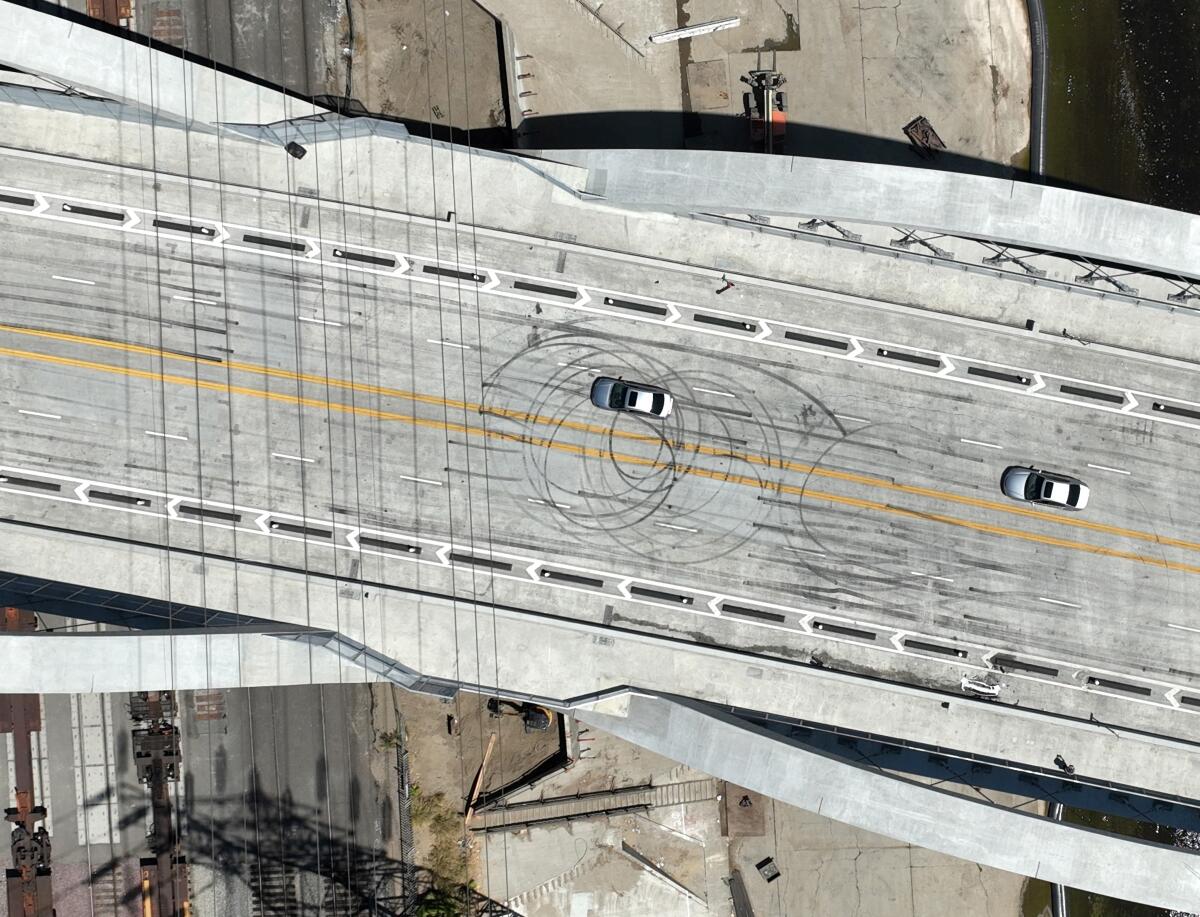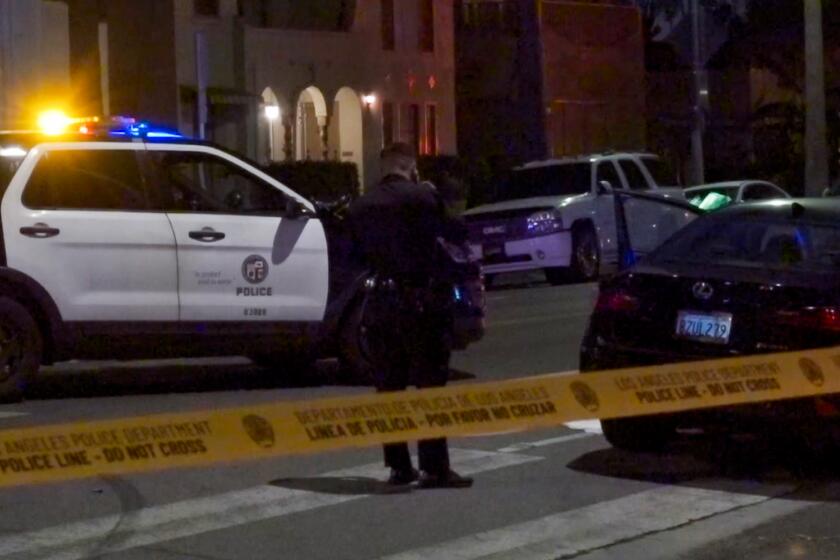L.A. City Council seeks to rein in street takeovers at multiple intersections

- Share via
The Los Angeles City Council has moved to target street takeovers at scores of intersections known to be sites of the illicit activity.
The council voted 12 to 1 on Tuesday to launch a pilot program at 20 intersections, including Grand Avenue and 4th Street in downtown L.A. and Glenoaks Boulevard and Polk Street in Sylmar. Raised, hardened center lines will be installed at the intersections to deter motorists from doing “doughnuts” and other stunts, officials said. The cost of the program is $80,000.
Street takeovers, also known as sideshows, typically draw large crowds. Cars spin around intersections, burning tires and sending smoke in the air, to the delight of onlookers.
The Times has reported on the shootings and deadly crashes that have occurred at street takeovers.
A 23-year-old man was shot and killed Friday during a South Los Angeles street takeover at 54th Street and Manhattan Place, the LAPD said.
At a City Council committee hearing last month, police officials said the takeovers are increasingly violent. Responding officers are met in some cases with rocks and laser pointers, officials said. It’s extremely dangerous for police to try to stop a street takeover, in part because the cars flee at excessive speeds, endangering the public, the officials said.
According to police data presented at the hearing, L.A. street racing and takeovers peaked in 2020, with 912 incidents. In 2019, there were 319 incidents, and in 2023, 482, police said.
The Los Angeles Department of Transportation has tested rumble strips and other traffic measures at five city intersections, Laura Rubio-Cornejo, the general manager, said at last month’s hearing.
Get the lowdown on L.A. politics
Sign up for our L.A. City Hall newsletter to get weekly insights, scoops and analysis.
You may occasionally receive promotional content from the Los Angeles Times.
However, in some cases, the cars just move to the next intersection. Rubio-Cornejo said there isn’t a one-size-fits-all approach to curbing the problem of street takeovers.
Councilmember Eunisses Hernandez, who represents neighborhoods on the city’s Eastside, was the lone vote against the pilot program Tuesday, saying she doesn’t believe it’s the right solution.
“I want to see us investing in proactive safe street infrastructure that improves safety for our communities and reduces instances of street violence, not just investing in models that respond after harm occurs,” she said.
Councilmembers Kevin de León and Imelda Padilla were absent from Tuesday’s vote.
The intersections targeted for the raised, hardened center lines include:
—Grand Avenue & 4th Street
—Grand Avenue & 2nd Street
—Grand Avenue & 3rd Street
—N. Meyers Street & Kearney Street
—Figueroa Avenue & 2nd Street
—Crenshaw Boulevard & Florence Avenue
—Manchester Boulevard & San Pedro Street
—Hoover Avenue & Century Boulevard
—Western Avenue & Century Boulevard
—Normandie Avenue & Gage Avenue
—Balboa Boulevard & Foothill Boulevard
—Bledsoe Street & Bradley Avenue
—Balboa Boulevard & San Fernando Mission Boulevard
—Glenoaks Boulevard & Polk Street
—Yamell Street & Foothill Boulevard
—Lincoln Boulevard & Manchester Avenue
—Western Avenue & Washington Boulevard
—Mulholland Drive & Corda Drive
—Fairfax Avenue & Pico Boulevard
—Pacific Coast Highway & Temescal Canyon
More to Read
Sign up for Essential California
The most important California stories and recommendations in your inbox every morning.
You may occasionally receive promotional content from the Los Angeles Times.















